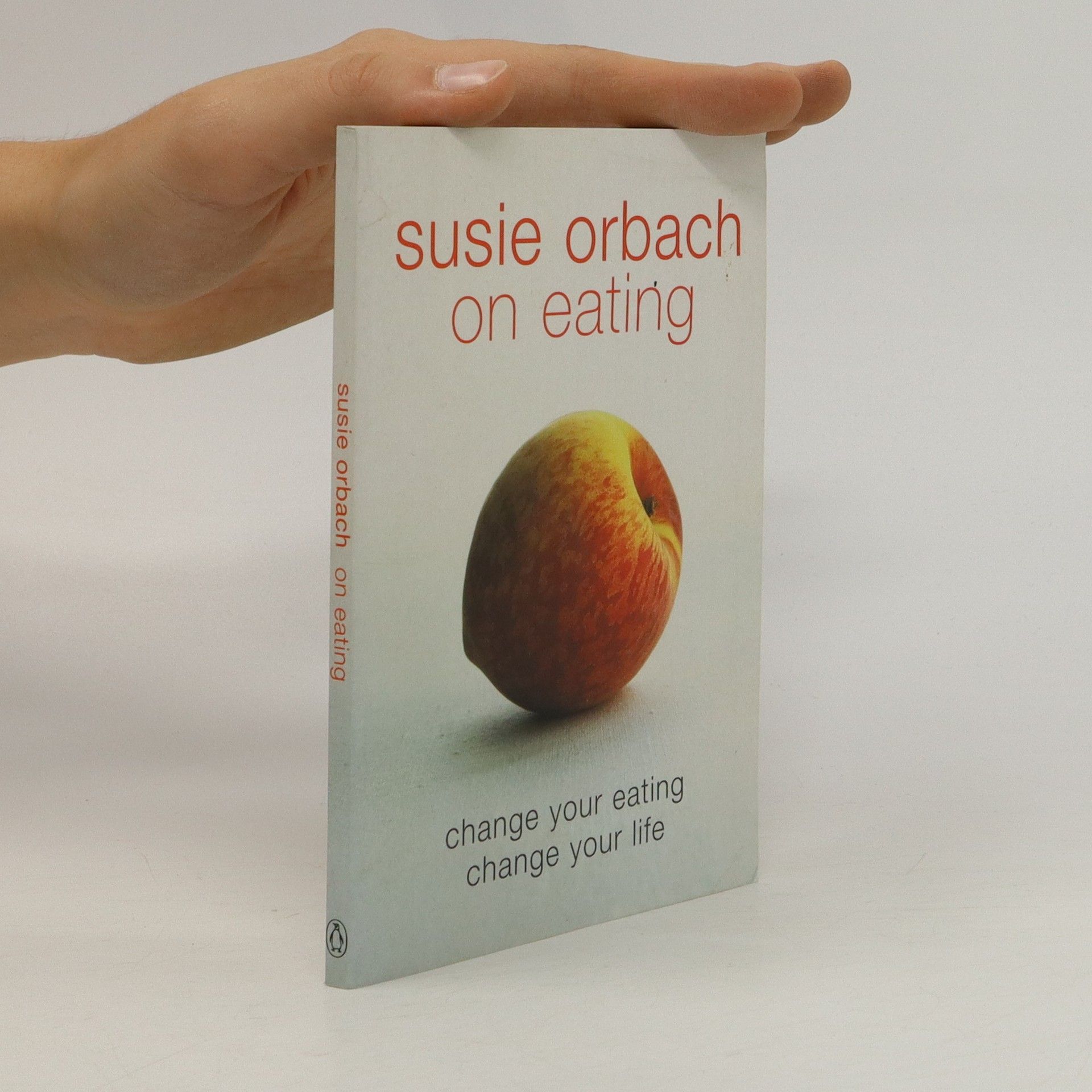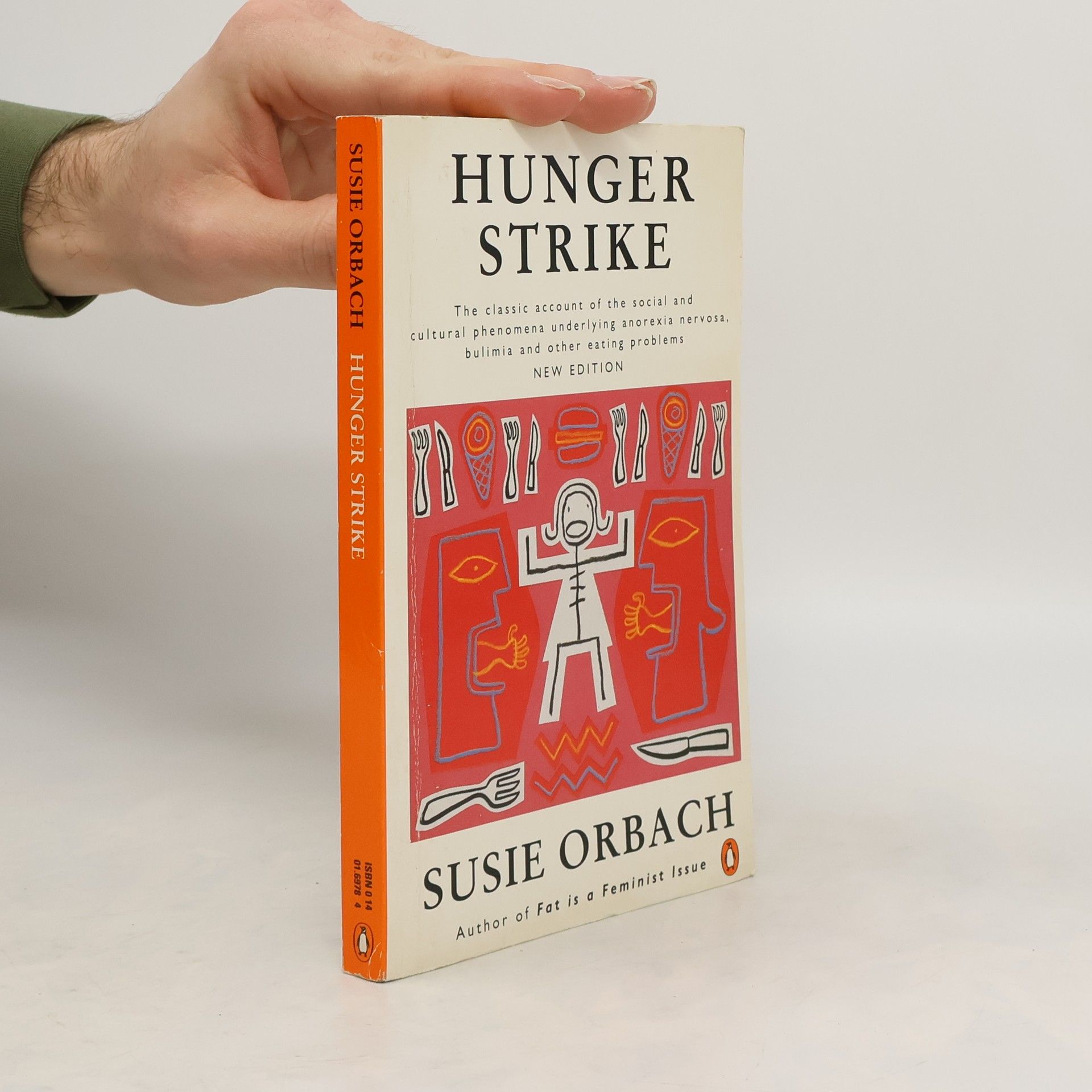The crucial struggle between connectedness and autonomy and its effect on friendships between women forms the heart of this brilliant and timely book. Helps develop a sense of self in order to enjoy richer friendships.
Susie Orbach Boeken
Dr. Susie Orbach is een vooraanstaand figuur in de therapie, die zich verdiept in psychotherapie en de maatschappelijke impact ervan. Haar werk verkent de diepgaande verbinding tussen lichaam en geest, waarbij ze zich vaak richt op thema's als eetstoornissen en lichaamsbeeld. Orbach benadert therapie vanuit een feministisch perspectief, waarbij ze maatschappelijke normen en hun invloed op individueel mentaal welzijn uitdaagt. Haar visie stimuleert diepere reflectie op persoonlijke ervaringen en maatschappelijke druk.






Hunger Strike
- 224bladzijden
- 8 uur lezen
In her examination of the anorectic's struggle, Susie Orbach sees women's eating problems as symbolizing the battle for autonomy in which every woman is engaged by identifying the first and most important arena of contention, a woman's body. As the author demonstrates, a woman's obsessive monitoring, severe reduction in food intake and the accompanying bingeing are a reflection of society's demands that she does not take up too much space, that she looks a certain way in order to be acceptable and that she curtails her needs in general. Yet anorexia also expresses a rebellion againts such ideas. It is, at another level, a cry of protest, a hunger strike against the contradictory and intolerable demands women face in contemporary society.
Susie Orbach on Eating
- 128bladzijden
- 5 uur lezen
'Eating is pleasurable, eating is delicious, eating is sensual' says Susie. But for so many of us eating is associated with anguish and abstinence. From the first page this little book shows us how to think and feel differently about what we eat. So that we eat when we are hungry, eat what we want to eat to satisfy us and stop when we are full. Each page contains an easily absorbed bite-sized statement to transform eating that hurts into eating that nourishes and calms. This book isn't magic but it feels as if it is.
Bodies
- 224bladzijden
- 8 uur lezen
We may be the last generation to inhabit bodies not routinely reconstructed by surgical enhancements. Over the last decades, our body has become an individual statement and a crucial personal responsibility. For many of us, it is the source of terrible difficulty while for others it is an expensive commodity ...
Fat Is A Feminist Issue
- 400bladzijden
- 14 uur lezen
THE ORIGINAL ANTI-DIET BOOK IS BACK - in one volume together with its best- selling sequel. With an increasingly dominant diet industry, costing the consumer millions of pounds each year, Susie Orbach's best-selling classic is as important as ever in helping women to love their own body and face the demands of 21st-century living with confidence.
In Therapy
- 304bladzijden
- 11 uur lezen
Worldwide, increasingly large numbers of people are seeing therapists on a regular basis. In the UK alone, 1.5 million people are in therapy. We go to address past traumas, to break patterns of behaviour, to confront eating disorders or addiction, to talk about relationships, or simply because we want to find out more about what makes us tick. Susie Orbach, the bestselling author of Fat is a Feminist Issue and Bodies, has been a psychotherapist for over forty years. Here, she explores what goes on in the process of therapy - what she thinks, feels and believes about the people who seek her help - through five dramatised case studies. Originally broadcast as a Radio 4 series, here the improvised dialogue is replicated as a playscript, and Orbach offers us the experience of reading along with a session, while revealing what is going on behind each exchange between analyst and client. Insightful and honest about a process often necessarily shrouded in secrecy, In Therapy is an essential read for those curious about, or considering entering, therapy.



